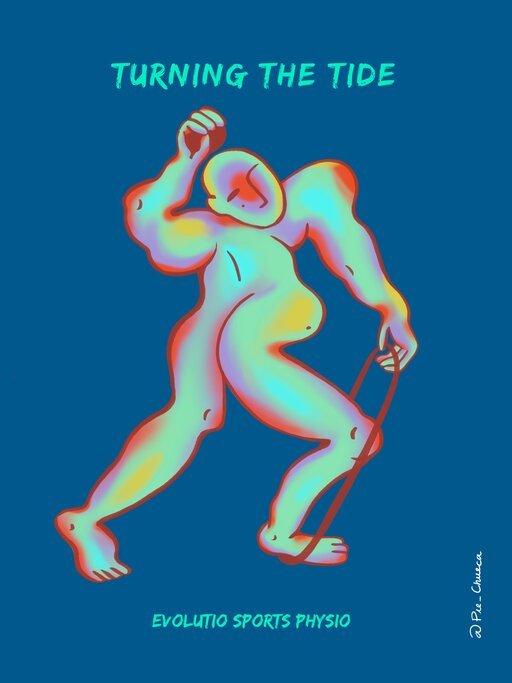Exercise Physiologist vs Physiotherapist
Exercise physiologists and physiotherapists are healthcare professionals who play distinct roles in promoting physical health and well-being, but they have different areas of specialisation and focus.
Physiotherapists are trained healthcare professionals who specialise in assessing and treating musculoskeletal and neurological conditions. They use various techniques such as manual therapy, exercise therapy, and modalities like heat and ultrasound to rehabilitate patients with injuries, surgeries, or medical conditions affecting their physical function. Physiotherapists work to improve mobility, reduce pain, and enhance their patients’ overall quality of life. They often work in hospitals, private clinics, and rehabilitation centres and may also provide home-based care.
Exercise physiologists on the other hand are experts in the field of exercise science and physiology. They assess and prescribe exercise programs to help individuals improve their overall fitness, manage chronic conditions, and optimise athletic performance. They use their knowledge of how the body responds to exercise to create personalised exercise plans that are safe and effective. Exercise physiologists often work in clinical settings, research institutions, and fitness centres, and they may collaborate with other healthcare professionals to design comprehensive health and fitness programs.
In summary, exercise physiologists primarily focus on exercise prescription and fitness improvement, while physiotherapists specialise in individuals' overall health and well-being in assessing and treating physical injuries and conditions. While there is some overlap in their areas of expertise, their primary roles and settings are distinct. Both professionals, however, contribute to individuals' overall health and well-being by promoting physical activity and rehabilitation. Here's a comparison of exercise physiology vs physiotherapy, the two regarding education, scope, clinical settings and focus of treatment.
Education and Training:
Exercise Physiologist: Exercise physiologists typically have a bachelor's or master's degree in exercise physiology, kinesiology, or a related field. They are trained to assess and prescribe exercise programs for individuals with various medical conditions or those seeking to improve their fitness. Most bachelor's degrees are three years for Exercise Physiology
Physiotherapist: Physiotherapists, also known as physical therapists in some countries, usually have a bachelor's or master's degree in physical therapy. Their education includes various musculoskeletal, neurological, and cardiovascular systems topics and clinical training in rehabilitation techniques. Most Physiotherapy degrees in Australia are four years with extensive testing and exams.
For information regarding becoming an Exercise Physiologist visit here
For more information on studying Physiotherapy and the ATAR Score Needed in Australia, visit here
Scope of Practice:
Exercise Physiologist: These professionals focus primarily on exercise prescription and fitness assessments. They work with clients to develop exercise programs tailored to their needs, whether for general fitness, managing chronic diseases, or improving athletic performance.
Physiotherapist: Physiotherapists have a broader scope of practice. They assess and treat various musculoskeletal, neurological, and cardiopulmonary conditions. They use multiple techniques, including manual therapy, exercise therapy, and modalities like ultrasound and electrical stimulation, to help patients recover from injuries, surgeries, or disabilities.
Clinical Settings:
Exercise Physiologists: They often work in fitness centres, sports performance facilities, or clinical settings where they collaborate with healthcare teams to provide exercise-based patient interventions.
Physiotherapist: Physiotherapists work in various settings, including hospitals, rehabilitation centres, private clinics, sports teams, and home healthcare settings, addressing a broader range of patient needs.
Focus of Treatment:
Exercise Physiologist: Their primary focus is on exercise to improve overall health, manage chronic conditions, and optimise physical performance.
Physiotherapist: Physiotherapists assess and treat a wide range of physical problems, including pain, mobility issues, balance problems, and neurological disorders. They use various interventions to promote functional recovery and pain relief.
Licensure and Regulation:
Exercise Physiologist: Licensing requirements for exercise physiologists vary by location; not all regions have specific licensure for this profession.
Physiotherapist: Physiotherapists are typically required to obtain licensure or registration to practice in their respective regions. They must adhere to strict professional standards and regulations.
In summary, exercise physiologists specialise in exercise prescription and fitness assessment, while physiotherapists have a broader scope of practice, encompassing the evaluation and treatment of various physical conditions. Both professions play essential roles in promoting health and well-being, often working together in cases where exercise is a component of rehabilitation or treatment.


